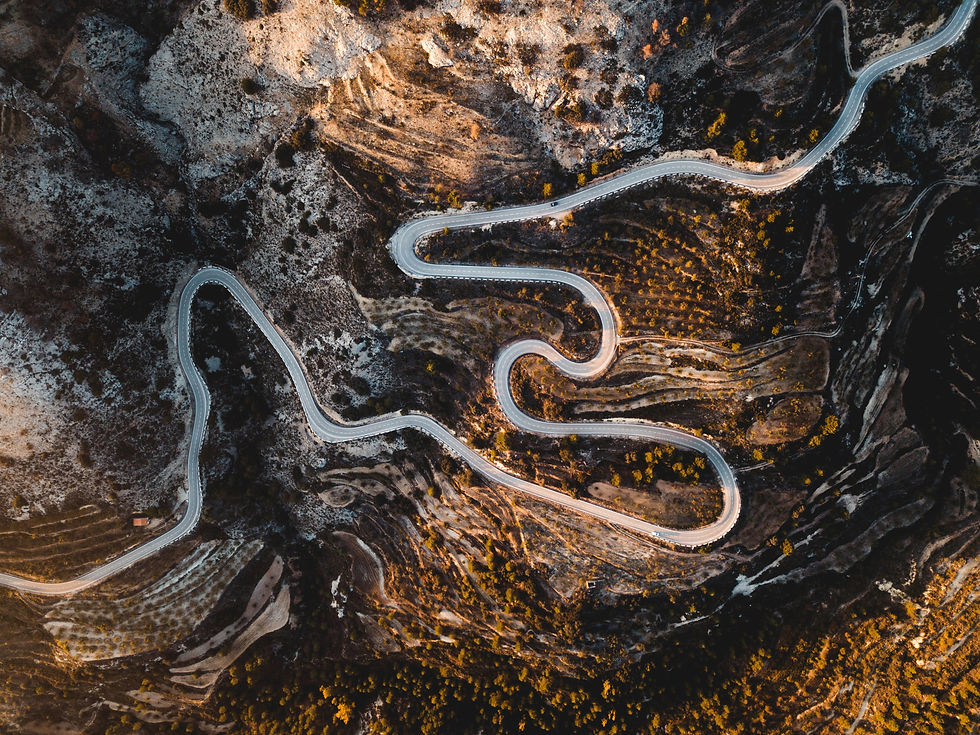Why do we travel?
- Elisa Baldassa
- Aug 14
- 3 min read
Updated: Aug 26
Long before travel was a choice, it was a necessity.
Our ancestors moved in search of food, shelter, more temperate climates. But as civilizations formed and societies grew, movement remained central, not just for survival, but for something deeper: we have always looked outward to understand ourselves.

Along the Silk Road, caravans carried silks and spices but also songs, technologies, and ideas. Pilgrims walked for months, not only to reach a sacred site, but to be transformed along the way. Sailors ventured into seas no one they knew had crossed bringing back wonders and knowledge.
History, though, shows that this pull toward the horizon has rarely been purely practical or purely noble. Those same ships also carried weapons and flags of conquest.
The “voyages of discovery” were, for many parts of the world, the beginning of colonization: moments when travel became an instrument of power, reshaping cultures and landscapes in ways that were often violent and irreversible. The history of movement is a story of connection, yes, but also of domination and appropriation.
With the industrial age came railways, steamships, and later airplanes, shrinking distances and expanding possibilities. Travel became a privilege for more, then a possibility for millions. But as it became easier, its pace began to reflect the fast and restless rhythm of modern times. Journeys turned into checklists. Cultures were reduced to snapshots taken between arrivals and departures.
The art of lingering gave way to the habit of moving on quickly.
In recent decades, this speed has collided with another challenge: overtourism .The pressure of overtourism is now visible in cities like Venice, Barcelona, and Dubrovnik, where historic centers struggle under the weight of visitors. Residents can’t afford rent in their own cities, neighborhoods lose their character and fragile environments are damaged. Sacred sites become photo backdrops and traditions risk being performed more for tourists than for the community itself.
What began as an opportunity for cultural exchange can, if unchecked, turn into exploitation.

Lately, however, a quiet change is taking place. More travelers are asking different questions: not just where to go, but why and in what way. They choose to stay longer in one place, to return to a destination instead of rushing to the next, to notice the daily rhythms instead of skimming the surface. It’s not a rejection of convenience, but a recognition that the most meaningful encounters require time.
Part of this change comes, again, from necessity. The environmental cost of constant flights is impossible to ignore and cities strained by tourism are searching for ways to protect themselves. Yet the deeper reason is more intimate: in a world of constant motion, slowing down feels radical. It allows us to listen more carefully, to look more closely and to let a place work on us in unexpected ways.

This return to a more reflective form of travel doesn’t require epic journeys or remote villages.
It can begin in how we plan, how we move, how we listen. Choosing a train over a plane; spending a week in one town instead of rushing through five; visiting outside of peak seasons; staying in a family-run guesthouse, striking up a conversation in broken language. These small choices build bridges and they shift travel from a transaction to an experience.
What people are seeking now is not simply the perfect photograph, but a sense of connection: moments that can’t be staged and experiences that feel unrepeatable.
In many ways, this is a return to our oldest instincts. Humans have always sought the unknown not only to claim it, but to learn from it. And now we are relearning that discovery doesn’t always mean going far: sometimes, it “just” means going differently with intention, attention, and care.
When travel is approached this way, it can gives us moments that stay with us long after we’ve returned and reminds us that we are part of something larger than ourselves.That’s what Bites is about: capturing small, authentic pieces of the world that go beyond the surface.We share them to encourage travel that’s curious, respectful, and connected, so every journey becomes more than just a trip: it becomes part of a shared human story.



Comments